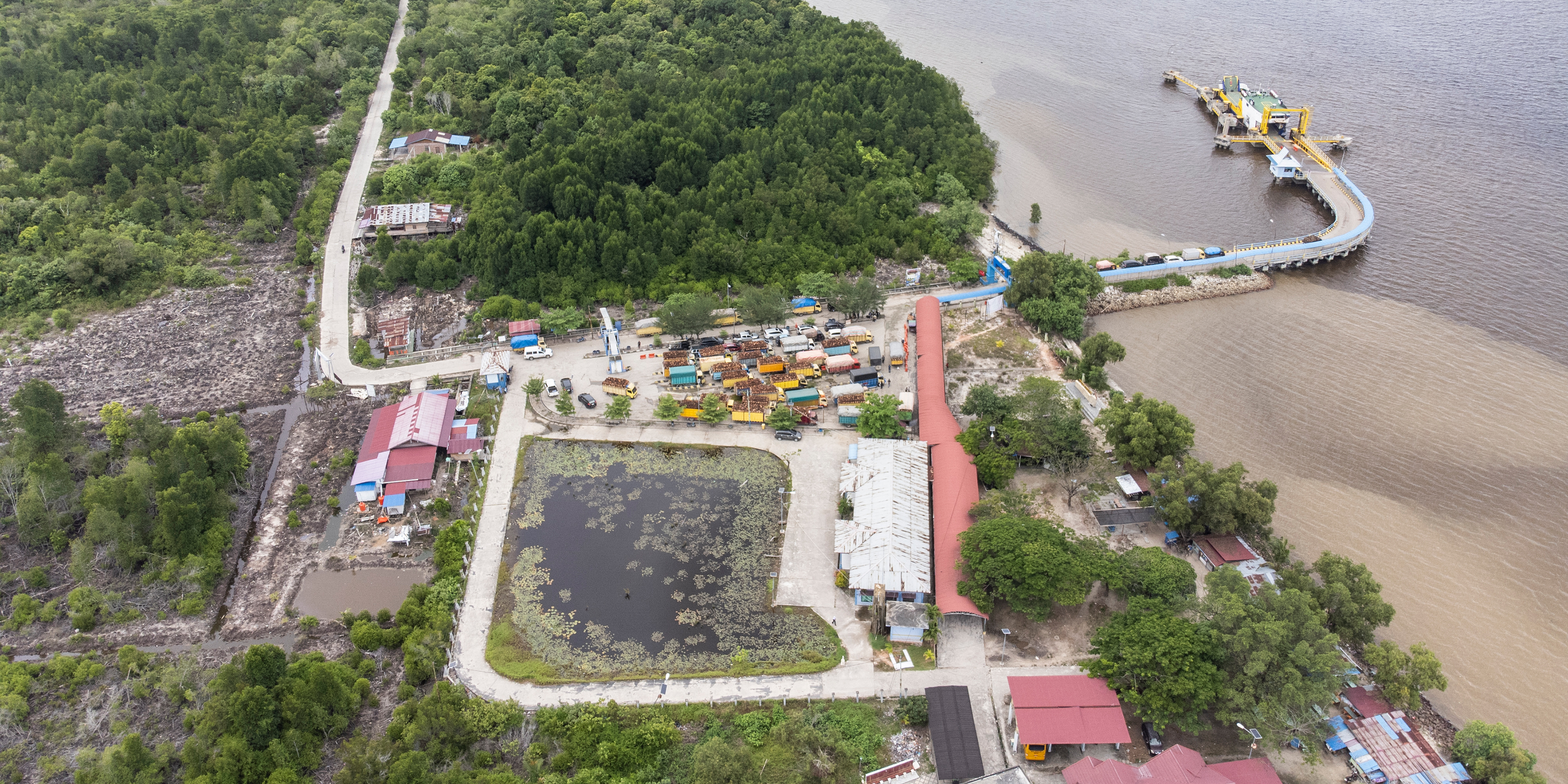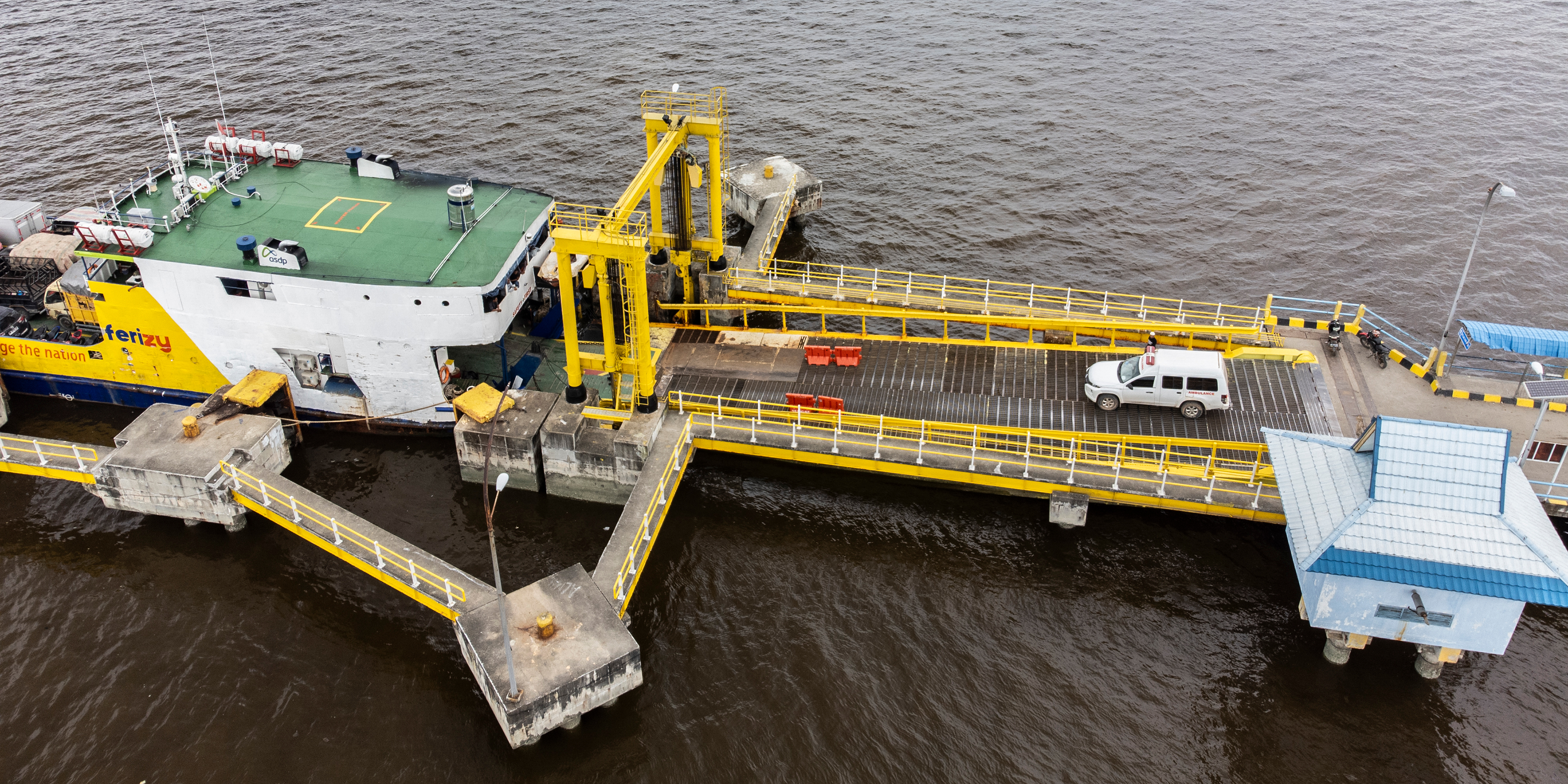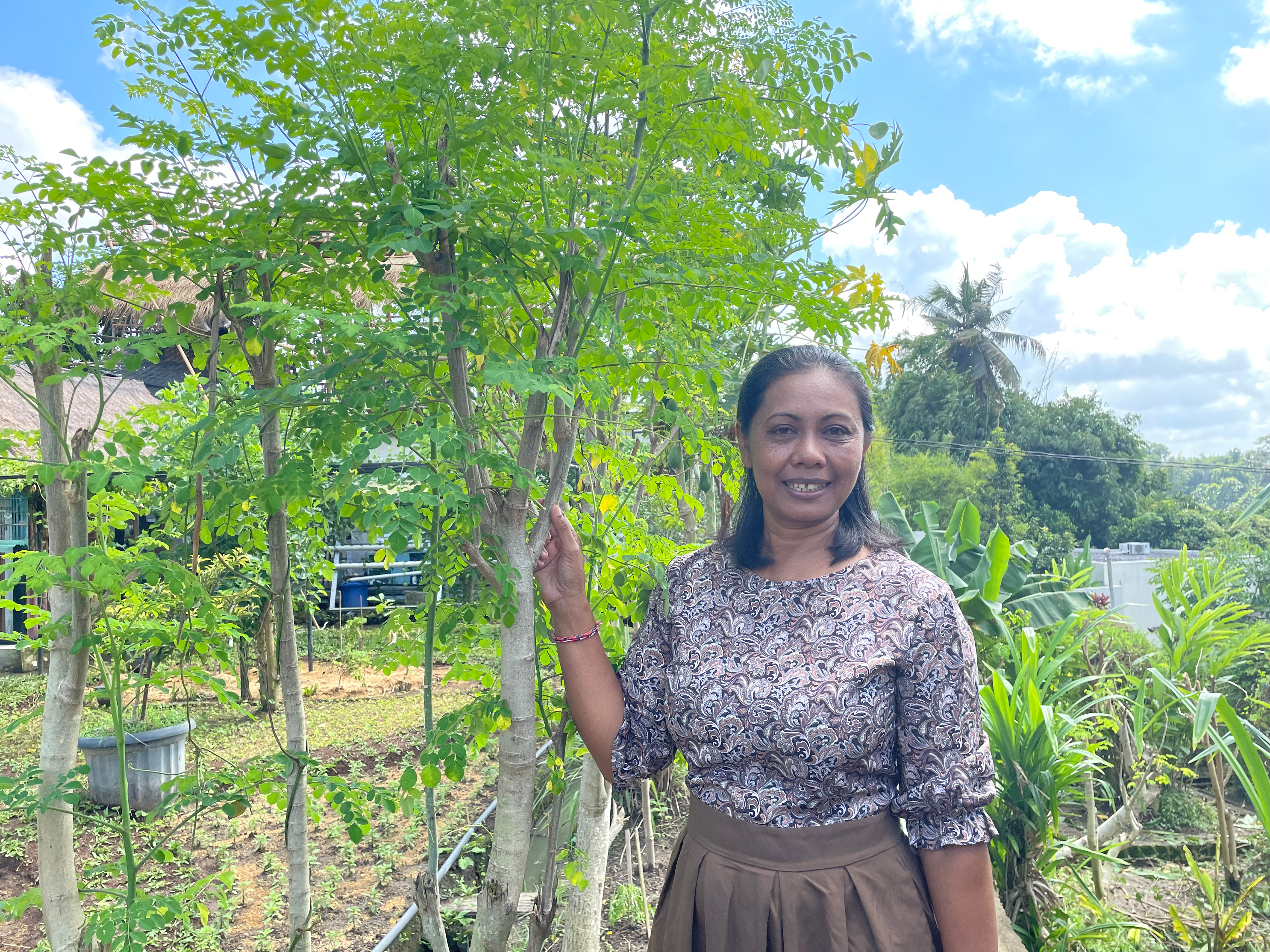
The Rupat Island Port (above) links passengers and cargo to the city of Dumai.
Indonesia is an archipelago of over 17,000 islands and has the largest economy in Southeast Asia. The country possesses abundant natural resources, a vibrant population, and a growing middle class, but faces a number of major obstacles that continue to impede its economic growth. Those obstacles include poor infrastructure and limited access to finance for micro, small, and medium-sized enterprises (MSMEs). With those issues in mind, MCC’s $649 million Indonesia Infrastructure and Finance Compact offers solutions through its focus on MSME support and funding for critical infrastructure, unlocking the potential for big economic benefits.
The Dumai and Rupat Island ports—important links in Indonesia’s transportation network— are emblematic of the country’s infrastructure challenges. The ferry route that connects the city of Dumai to Rupat Island serves as the principal entry and exit point for vehicles, aiding the transfer of vital products such as clothing, food, and other household supplies. Cargo trucks rely on this route to export palm oil and rubber for further distribution. Critically, the route also plays a role in the healthcare system, as emergency responders transport patients from the island to medical facilities in Dumai.

Ambulance boarding the ferry from Rupat Island to Dumai.
Despite their importance, however, the Dumai and Rupat Island ports continue to face many obstacles. Only four ferries travel the route, resulting in lengthy wait times for vehicles and passengers, especially during busy periods such as seasonal vacations. On either side, one road is used to board and deboard all passengers, vehicles, and cargo, worsening congestion. This highlights the need for infrastructure improvements, such as improved parking and waiting facilities and separated roads for passengers and cargo.
Addressing such challenges are crucial not only for increasing transportation efficiency, but also for stimulating regional economic activity. MCC is working with subnational governments to make infrastructure investments in five target provinces, specifically South Sumatra, North Sulawesi, Riau, Riau Islands, and Bali. The aim is to attract private sector contributions that will support the rehabilitation of critical infrastructure such as the Dumai and Rupat Island ports—located in Riau province— resulting in lower logistics costs, shorter wait times, and potentially fewer maritime accidents. Ultimately, the compact will develop improved infrastructure planning that subnational governments can utilize to make transportation safer and more accessible to passengers.
Infrastructure is not the only obstacle confronting Indonesia on its road to increased prosperity. MSMEs are the backbone of the country’s economy, accounting for 99% of all firms and creating the majority of job opportunities. However, limited access to capital stifles the growth of many businesses. Only 21.3% of bank funding is directed to MSMEs, significantly limiting their growth potential. In particular, women-owned MSMEs encounter significant socioeconomic and legal restrictions that limit their capacity to receive loans.

Founder, Spa Factory Bali, a skincare and spa products factory that exports to local and international hotel chains and businesses.
From the start, MSMEs often begin with limited knowledge and resources on how to develop a business, making it increasingly difficult to keep up with expansion. This was noted by the founder of Spa Factory Bali. “When you open a business you start with a business plan. [However,] in Indonesia, you start by creating something, you sell it, [and if] it has a value, it becomes commercial, and then you realize you need a business plan. That’s why after 2-3 years many MSMEs are struggling,” she said.
The lack of accessible finance only exacerbates business owners’ challenges. The founder of Made Tea recalled her journey to obtaining the first loan for her business. “When I got my first loan, it was a lot of forms to fill out. I almost gave up because I didn’t understand, but I wanted to follow the regulations. Sometimes it takes so long,” said the founder. Her experience highlights that the issue for these businesses is not effort or desire but rather access.

Founder of Made Tea, a tea farm that exports custom tea blends to stores across Indonesia and overseas.
To address this, MCC and the Government of Indonesia will improve the country’s lending environment, making finance more accessible for MSMEs, especially for those owned by women. The compact will also provide business enhancement and digital and literacy trainings to women entrepreneurs.
Transportation infrastructure and Indonesia’s MSMEs are inextricably linked as both are essential to the country's prosperous economic future. Infrastructure improvements will accelerate the movement of goods, lower prices, and boost access to new markets. This, in turn, benefits MSMEs by increasing distribution channels, which are vital for their growth and sustainability. Improved transportation infrastructure can also help with the flow of raw materials and completed goods, increasing MSMEs' productivity and competitiveness.
MCC and the Government of Indonesia's partnership through the Infrastructure and Finance Compact is a strategic investment in the country's future. By tackling crucial infrastructure and access to finance challenges, MCC supports the country’s path towards a more dynamic, inclusive, and sustainable economy for all Indonesians.

